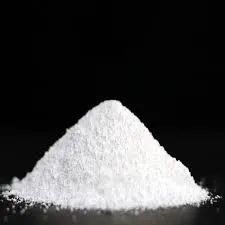The Role of API Intermediates in Pharmaceutical Development
The pharmaceutical industry is a highly complex and regulated field that requires meticulous processes at each stage of drug development. One of the crucial elements in this process is the use of Active Pharmaceutical Ingredients (APIs) and their intermediates. API intermediates are compounds that are formed during the synthesis of an active pharmaceutical ingredient. Understanding their role is essential for optimizing drug production, ensuring quality, and maintaining regulatory compliance.
The Role of API Intermediates in Pharmaceutical Development
The importance of API intermediates extends beyond their role in synthesis; they play a significant part in the overall efficiency of drug manufacturing. By optimizing the synthesis pathway, pharmaceutical companies can minimize waste and reduce production costs. Advanced techniques, such as continuous flow chemistry and green chemistry principles, allow manufacturers to create intermediates in a more sustainable manner. This not only enhances productivity but also aligns with the growing emphasis on environmentally friendly practices in the pharmaceutical industry.
api intermediates

Moreover, the efficient management of API intermediates is crucial for regulatory compliance. Regulatory agencies, such as the FDA in the United States and the EMA in Europe, have stringent guidelines that govern the pharmaceutical industry. These regulations often require detailed documentation of each intermediate, including its synthesis process, quality control measures, and stability data. Keeping accurate records and ensuring the traceability of intermediates helps companies avoid potential pitfalls during inspections and audits.
Quality control is another critical aspect associated with API intermediates. Since these substances can significantly impact the final product's efficacy and safety, rigorous testing is mandated to ensure their quality. Analytical techniques such as High-Performance Liquid Chromatography (HPLC), Nuclear Magnetic Resonance (NMR) spectroscopy, and Mass Spectrometry (MS) are commonly employed to assess the identity, purity, and concentration of intermediates. By implementing robust quality assurance protocols, manufacturers can mitigate risks associated with impurities, which could lead to adverse reactions or ineffective treatments.
Collaboration and communication among various departments—such as research and development, quality assurance, and production—are essential when dealing with API intermediates. An interdisciplinary approach enhances problem-solving capabilities and leads to more innovative solutions. For example, advancements in computational chemistry can facilitate the design of more efficient synthetic pathways, thereby enhancing the scalability and feasibility of producing intermediates.
In conclusion, API intermediates play a pivotal role in the drug development process, influencing the efficiency, quality, and regulatory compliance of pharmaceutical manufacturing. As the industry evolves, the focus on optimizing the synthesis of intermediates will continue to grow, driven by the need for cost-effectiveness and sustainability. Understanding and managing the intricacies of API intermediates are not only crucial for pharmaceutical companies but also for the overall well-being of patients who rely on effective and safe medications. As a result, ongoing research and innovation in this area will likely shape the future landscape of pharmaceutical development, paving the way for new therapies and improved healthcare outcomes.

